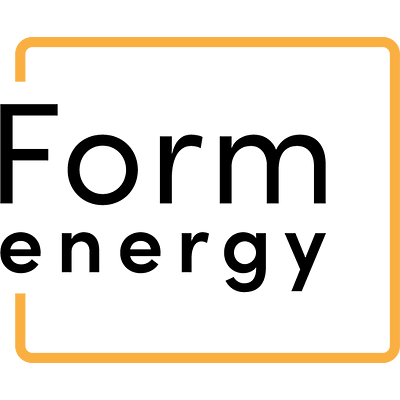
Radiation Optics Engineer
Apply now
Please let Commonwealth Fusion Systems know you found this job on Work in Green. This will help us grow!
Expired
Employment type:
Full time
Experience required:
Intermediate
Salary
Salary not provided
About the company:
Commonwealth Fusion Systems (CFS) is on a mission to deliver clean fusion energy to the planet fast enough to matter for humanity’s biggest challenges.
It’s urgent. The gap between the energy we need and the energy we have is widening every day. Fusion is a critical part of the energy transition away from fossil fuels, a new chapter for the world’s energy supply.
We’re committing to delivering fusion power plants and a full-fledged fusion energy industry as we’ve delivered on other promises. Like the world’s strongest high-temperature superconducting magnet, the game-changing technology that’s making commercial fusion energy a reality.
We’ve raised over $2 billion in capital — more than any other fusion energy company — and attracted top talent to design, build, and deliver commercial fusion power plants. And we’re working with policymakers and suppliers to make fusion energy available globally.
As we push toward the fusion-energy future, we’ll keep setting and meeting milestones, sharing and validating our progress, and encouraging others to do the same.
It’s urgent. The gap between the energy we need and the energy we have is widening every day. Fusion is a critical part of the energy transition away from fossil fuels, a new chapter for the world’s energy supply.
We’re committing to delivering fusion power plants and a full-fledged fusion energy industry as we’ve delivered on other promises. Like the world’s strongest high-temperature superconducting magnet, the game-changing technology that’s making commercial fusion energy a reality.
We’ve raised over $2 billion in capital — more than any other fusion energy company — and attracted top talent to design, build, and deliver commercial fusion power plants. And we’re working with policymakers and suppliers to make fusion energy available globally.
As we push toward the fusion-energy future, we’ll keep setting and meeting milestones, sharing and validating our progress, and encouraging others to do the same.
About Commonwealth Fusion Systems:
Commonwealth Fusion Systems is on a mission to deliver the urgent transition to fusion energy.
Combining decades of research, top talent and new technologies, we’re designing and building commercially viable fusion power plants. And working with policymakers and suppliers to build the energy industry of the future.
We’re in the best position to make it happen. Since 2018, we’ve raised over $2 billion in capital – more than any other fusion energy company in the U.S.
Now we’re looking for more thinkers, doers, builders, and makers to join us. People who’ll bring new perspectives, solve tough problems, and thrive as part of a team.
If that’s you and this role fits, we want to hear from you.
Join the power movement as a Radiation Optics Engineer
SPARC will be the first of its kind in many ways, including the use of fiber optic sensing arrays inside its magnets to monitor temperature and strain. These sensors will be vital to the longevity of the magnets in SPARC. We are looking for a Radiation Optics Engineer to own the design, execution, and data analysis of optical fiber irradiation and complex optical laser system testing. This role involves heavily diving into literature review, analyses of data, deriving empirical relations, understanding radiation impacts in optical fiber and laser systems, and documenting/presenting results.
The Radiation Optics Engineer will be responsible for handling optical fibers in order to execute complex experimental design setups such as fiber splicing, testing, and incorporation of fibers into complex design features.
The Engineer will also work with a diverse team of engineers, scientists, and work across multiple teams to innovate, problem solve, and develop interfacing optics systems in a complex SPARC environment.
This work is conducted within a multi-disciplinary team of physicists and engineers. Participation and clear, concise communication in design and test activities is necessary to both inform design decisions, prepare prototypes, and execute production.
#LI-Onsite
At CFS, we excel in fast-paced environments, driven by our values of integrity, execution, impact, and self-critique. As we grow, we’re eager to bring on mission-driven folks who offer diverse perspectives and fresh ways to tackle challenges.
We value diversity deeply and are proud to be an equal opportunity employer by choice. We consider all qualified applicants equally, regardless of race, color, national origin, ancestry, citizenship status, protected veteran status, religion, physical or mental disability, marital status, sex, sexual orientation, gender identity or expression, age, or any other basis protected by law.
What you'll do:
What we’re looking for:
Bonus points for:
Must-have Requirements:
Similar climate jobs
These are some of our top picks for great climate jobs on Work in Green.

USA

USA

USA

USA

USA

USA
1228 Renewables jobs at Commonwealth Fusion Systems
Commonwealth Fusion Systems is hiring Production Technician - Third Shift,NDT Ultrasonic (UT) Inspector,Senior Financial Analyst, and more.

USA

USA

USA

USA

USA